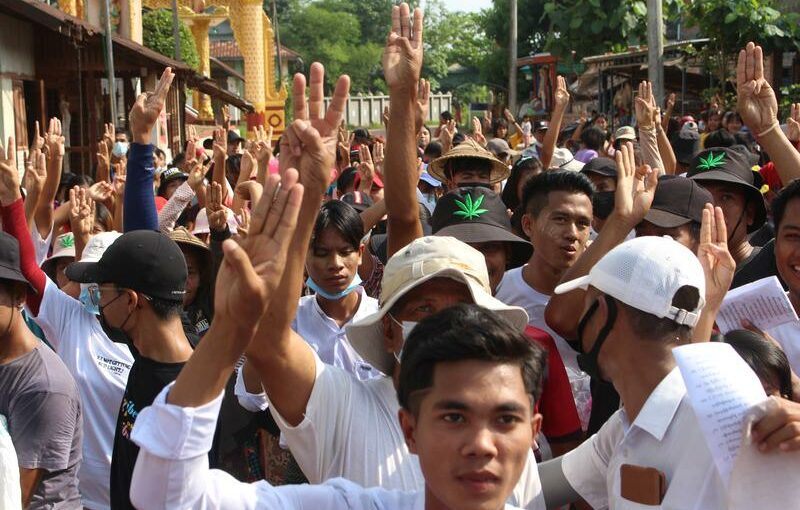(Reuters) – Activists opposed to Myanmar’s junta called on Monday for people to stop paying electricity bills and agricultural loans, and keep their children away from school, scorning the top general’s pledge at a regional summit to end the post-coup crisis.
Scattered protests took place in Myanmar’s big cities on Sunday, a day after Senior General Min Aung Hlaing reached an agreement, at a summit of the Association of Southeast Asian Nations (ASEAN) in Indonesia.
The junta chief did not submit to calls for the release of political prisoners, including the leader of the ousted civilian government, Aung San Suu Kyi, and the ASEAN accord lacked any timeline for ending the crisis.
An estimated 750 people have been killed by security forces, as Myanmar’s generals unleashed lethal force in the face of sustained protests against their Feb. 1 coup. Reuters is unable to confirm the death toll, as the junta has significantly curbed media freedoms, and many journalists have been detained.
A civil disobedience campaign of strikes has crippled the economy and raised the prospect of hunger, international aid agencies have warned.
Pro-democracy activists have called for an intensification of their effort from Monday by refusing to pay electricity bills and agricultural loans, and for children to stop going to school.
“All of us, people in townships, wards and then regions and states must work together to make a successful boycott against the military junta,” activist Khant Wai Phyo said in a speech at a protest in the central town of Monywa on Sunday.
“We don’t participate in their systems, we don’t cooperate with them.”
A spokesman for the junta did not answer calls seeking comment.
Activists criticised a five-point agreement that came out of the ASEAN meeting, to end violence, start a dialogue among all parties, accept aid, and appoint a special ASEAN envoy who would be allowed to visit Myanmar.
The agreement did not mention political prisoners although the statement said the meeting heard calls for their release.
Suu Kyi, 75, has been charged with various offences including violating a colonial-era official secrets act that could see her jailed for 14 years.
She won the Nobel Peace Prize in 1991, and has led Myanmar’s struggle against military rule for decades. The won a second term in a November, and even though the election commission said the vote was fair the military, whose candidates suffered humiliating defeats, alleged it was a fraudulent election.
Suu Kyi is due to appear via video link for another hearing in her case on Monday.
She has only been allowed to talk with her lawyers via video link in the presence of security officials and it is not known if she is even aware of the turmoil that has engulfed the country since the military seized power.
Source: Read Full Article
